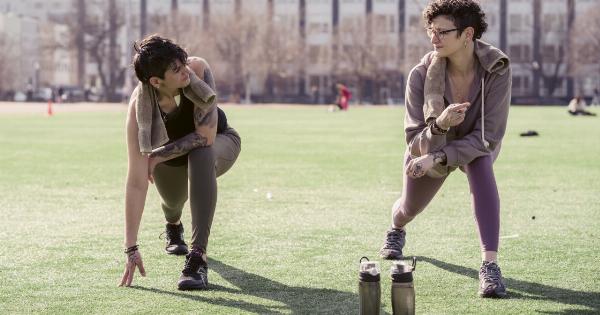Sleep is essential for our physical and mental health. However, getting a good night’s sleep is not easy for some people. Stress, anxiety, and physical discomfort can make it difficult to fall asleep and stay asleep.
One way to overcome this problem is by doing bedtime exercises.
Here are some effective bedtime exercises that can help you relax and get a peaceful sleep:.
1. Deep Breathing
Deep breathing can help you calm your mind and relax your body. It involves inhaling deeply through your nose and exhaling slowly through your mouth. You can do this exercise while lying in bed or sitting in a comfortable position.
2. Progressive Muscle Relaxation
Progressive muscle relaxation is a technique that involves tensing and relaxing different muscle groups in your body. This exercise can help you release tension and promote relaxation. Here’s how to do it:.
– Start by tensing the muscles in your feet and holding the tension for a few seconds.
– Release the tension and relax your feet.
– Move on to your calves, tensing the muscles and then relaxing them.
– Continue working your way up your body, tensing and relaxing each muscle group.
3. Yoga
Yoga is a great way to destress and unwind before bed. Gentle yoga poses can help you stretch your muscles and calm your mind. Here are a few yoga poses that you can do before bed:.
– Child’s Pose.
– Forward Fold.
– Legs up the Wall Pose.
– Reclining Bound Angle Pose.
4. Stretching
Stretching can help relieve muscle tension and prepare your body for sleep. You can do some gentle stretches in bed to help you relax and unwind. Here are a few stretches to try:.
– Neck Stretch.
– Shoulder Roll.
– Seated Forward Bend.
– Butterfly Stretch.
5. Meditation
Meditation can help you clear your mind and prepare for sleep. It involves focusing your attention on a particular object, thought, or activity. There are many different types of meditation, and you can choose one that works best for you.
6. Visualization
Visualization is a technique that involves imagining a peaceful scene or situation. It can help you relax and reduce stress. You can visualize yourself in a peaceful place, such as a beach or a forest, and focus on the sights, sounds, and sensations.
7. Guided Imagery
Guided imagery is a form of meditation that involves listening to a recorded script that guides you through a relaxing scenario. It can help you reduce stress and prepare for sleep. You can find guided imagery scripts online or in books.
8. Journaling
Journaling can help you process your thoughts and emotions and reduce stress. You can write about your worries, fears, and hopes, and reflect on your day. You can also write down things that you are grateful for and things that bring you joy.
9. Aromatherapy
Aromatherapy involves using essential oils to promote relaxation and improve sleep. You can use a diffuser to spread the scent in your room or apply the oil to your skin.
Lavender, chamomile, and jasmine are some of the most popular essential oils for sleep.
10. Progressive Relaxation for Sleep
Progressive relaxation for sleep is a technique that involves tensing and relaxing your muscles in a specific sequence. It can help you release tension and promote relaxation. Here are the steps:.
– Start by tensing and holding your toes for a few seconds.
– Release the tension and relax your toes.
– Move on to your feet, tensing and holding for a few seconds.
– Release the tension and relax your feet.
– Continue working your way up your body, tensing and relaxing each muscle group.
Conclusion
Bedtime exercises can help you relax and prepare for sleep. Try the techniques mentioned in this article to see which ones work best for you.
By practicing these exercises regularly, you can improve the quality of your sleep and wake up feeling refreshed and energized.





























